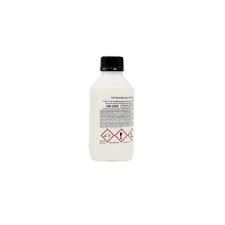Impact of Scale and Corrosion Inhibitors on Cooling Tower Efficiency and Longevity
Scale and Corrosion Inhibitors for Cooling Towers
Cooling towers are essential components in various industrial processes, including power generation, chemical manufacturing, and HVAC systems. Their primary function is to dissipate waste heat and regulate the temperature of circulating water. However, the operation of cooling towers is significantly hindered by two common issues scale formation and corrosion. Both of these problems not only decrease the efficiency of the cooling system but also lead to costly repairs and downtime. To combat these issues, effective scale and corrosion inhibitors are deployed.
Understanding Scale and Corrosion
Scale is a hard, mineral deposit that forms on the surfaces of equipment when water is heated or evaporates. In cooling towers, scale primarily consists of calcium carbonate, silica, and magnesium silicate, which can precipitate out of the water, leading to blockages in pipes, reduced heat transfer efficiency, and increased operational costs. The presence of scale can cause a substantial decrease in cooling efficiency, leading to higher energy consumption and increased wear on both the cooling tower and associated equipment.
Corrosion, on the other hand, is the degradation of materials due to various chemical and electrochemical reactions. In cooling towers, corrosion is often accelerated by the presence of water, including chilled water and makeup water, as well as contaminants that may enter the system. Factors such as pH, temperature, dissolved oxygen, and the presence of salts or other aggressive ions can contribute to the rate of corrosion. Corroded surfaces can lead to leaks, structural failure, and significant financial losses.
The Role of Inhibitors
To mitigate the issues of scale and corrosion, various types of inhibitors are used. These inhibitors function by either forming a protective layer on the surfaces of the equipment or by altering the chemical processes that lead to scale formation and corrosion.
1. Scale Inhibitors These chemicals prevent the precipitation of mineral scales by modifying the crystalline structure of scale-forming compounds or by keeping them in solution. Common scale inhibitors include phosphate-based compounds, polymeric dispersants, and organic acids that can chelate metal ions. By using scale inhibitors, operators can maintain system efficiency and prolong the operational life of their equipment.
2. Corrosion Inhibitors Corrosion inhibitors fall into two primary categories anodic and cathodic inhibitors. Anodic inhibitors work by forming a protective oxide layer on the metal surface, thereby preventing further corrosion. Common anodic inhibitors include phosphates and silicates. Cathodic inhibitors, such as zinc salts and other compounds, minimize the corrosion process by reducing the corrosion rate at the cathode. The choice of inhibitor depends on several factors, including the type of metal used in the cooling system and the specific water chemistry.
scale and corrosion inhibitor for cooling tower

Best Practices for Using Inhibitors
To maximize the effectiveness of scale and corrosion inhibitors, facility managers should adopt best practices
- Regular Monitoring and Testing Consistent monitoring of water chemistry is crucial to determine the appropriate dosage of inhibitors. Parameters such as pH, conductivity, hardness, and the concentration of dissolved solids should be regularly assessed.
- Tailored Inhibitor Selection The choice of inhibitors must be tailored to the specific water conditions and materials in the cooling tower system. Different inhibitors work better in varying conditions, and incorrect selection can lead to suboptimal performance.
- Preventive Maintenance Regular maintenance and cleaning of the cooling system can help in early detection of scale and corrosion build-up. Preventive measures, along with the effective use of inhibitors, ensure long-term operational efficiency.
- Employee Training Staff should be trained in the proper application and understanding of scale and corrosion inhibitors. Awareness of the interactions between water conditions and inhibitor chemistry can help in optimizing their usage.
Conclusion
In summary, scale and corrosion pose significant challenges to the operation of cooling towers. By understanding these issues and implementing effective scale and corrosion inhibitors, facilities can enhance system performance, reduce maintenance costs, and extend the lifespan of their cooling systems. As technology advances, ongoing research and development will lead to more effective and environmentally friendly inhibitors, contributing to more sustainable industrial practices. Awareness and proactive measures in managing these problems ensure that cooling towers operate efficiently, ultimately benefiting both the business and the environment.
-
Pbtc Scale InhibitorPBTC: A Scale Protector for Industrial Water TreatmentNewsAug.05,2025
-
Organic Phosphonate: An Efficient Defender in the Field of Scale InhibitionNewsAug.05,2025
-
Hydrolyzed Polymaleic Anhydride: Green Pioneer in Scale Inhibition FieldNewsAug.05,2025
-
PAPEMP Polyamino Polyether Methylene Phosphonic Acid For SaleNewsAug.05,2025
-
Flocculant Water Treatment: A Pioneer in Purification in the Field of Water TreatmentNewsAug.05,2025
-
Benzyl Isothiazolinone: An Efficient and Broad-Spectrum Antibacterial Protective GuardNewsAug.05,2025





